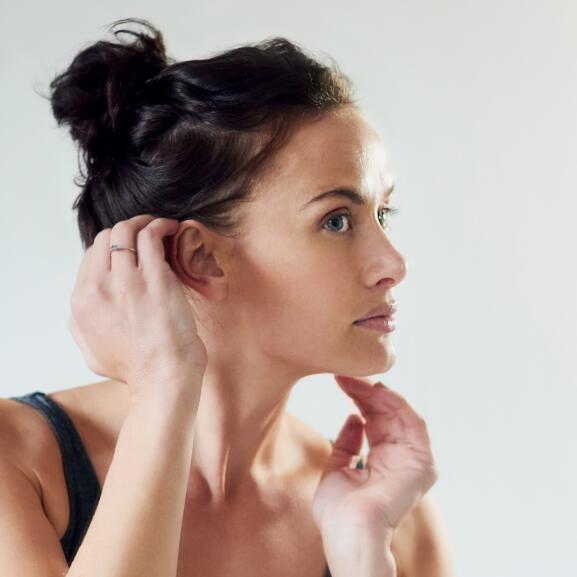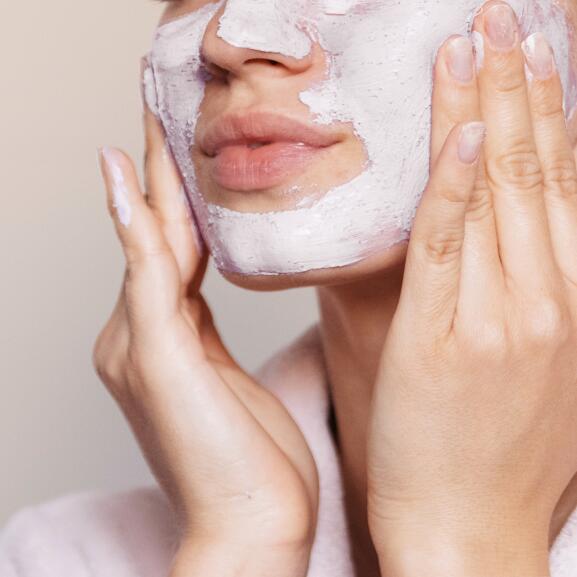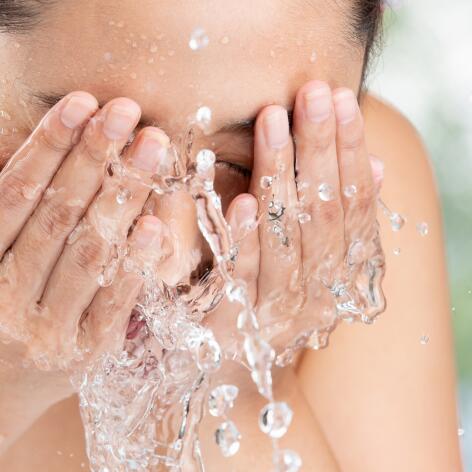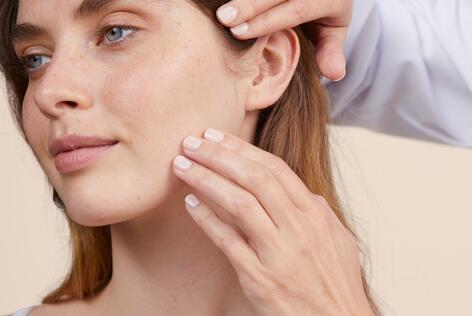Acne: good and bad habits
Acne: good and bad habits
Some days start off badly: one more pimple has appeared during the night... Whether you're a teenager or an adult, acne is rarely welcome and there’s lots of temptation to make the pimples disappear as quickly as possible. We explain how to avoid the wrong habits, and how to adopt the right ones to better deal with acne on a daily basis.

Hygiene, sun... Stop the myths about acne
Living with acne means having to deal with many prejudices and preconceived notions. Acne is said to be linked to a lack of hygiene. It disappears with the sun. It only affects teenagers. Shall we go on?
So we repeat: no, acne has nothing to do with poor hygiene (and it’s not contagious either). It’s a chronic skin disease that affects about 80% of teenagers and more than a quarter of adults, mainly women. It’s triggered by hormones and can be aggravated by factors such as diet, stress, smoking or unsuitable cosmetics.
What about the sun? Here again, let's bust a myth. If it reduces or even makes the acne disappear, this effect is temporary. As soon as the sun's rays diminish and the skin, which has thickened in the sun, regains its usual thickness, the pimples come back... sometimes twice as many.
Oily skin with imperfections and acne / Acne-prone skin / Causes
My dermatologist recommended that I pay attention to the composition of creams and make-up products because certain formulations clog the pores. Since then, I've been much more careful about what I buy and apply to my skin!
Popping, scrubbing... put an end to those bad habits
So how do you get rid of acne? Start by avoiding touching your pimples: your fingers and hands can carry bacteria and your face should be kept as clean as possible. And as tempting as it is, don't pop your pimples! You risk aggravating the inflammation and causing scars that are very often difficult to remove.
The "skin scrubbing" option is also not recommended. Irritating cleansing products used too often will, above all, have the effect of attacking your skin. To defend itself against this aggression, it risks producing more sebum... and pimples!
What about natural solutions? Be careful with the "recipes" for home-made masks or scrubs that you find on the Internet. Just because it's natural doesn't mean it's suitable for your more sensitive skin. Instead, treat your acne with a dermatologist, the best skin specialist.

Cleansing and moisturising: the right things to do
What are the best habits to adopt when you have acne?
Cleansing acne-prone skin
This is the basis. Several types of products are available: micellar waters, cleansing gels, cleansing creams, etc. But be careful: they must be specially formulated for acne-prone skin. Apply them with gentle movements (no rubbing!) in the morning and evening to remove make-up and rid the skin of sebum and impurities. A spray of thermal spring water to finish and your skin is soothed.
Moisturising acne-prone skin
Even if it tends to be oily, acne-prone skin needs to be moisturised with anti-blemish, non-comedogenic dermatological products... In short, adapted to acne-prone skin. When you go out in the sun, don't forget to use sun protection products with a broad spectrum (UVA and UVB) and high protection (SPF 50+), ideally designed for sensitive skin.
FRIENDLY (AND EXPERT) ADVICE
The psychological impact of acne can be significant. To live better with your pimples, it’s not forbidden to wear make-up (quite the contrary!).
Green for red pimples, coral for brown scars: corrector sticks will be your best friends in camouflaging acne marks. Top with a compact foundation cream or a fluid foundation to even out your skin tone and a powder to set your make-up. Of course, all these cosmetic products must be non-comedogenic and formulated for blemish-prone skin. And don't forget to clean your brushes and sponges, otherwise you risk maintaining your acne because of the bacteria present on these make-up accessories.
The right things to do to live with acne
If, despite all your precautions, your acne persists and complicates your life, don’t hesitate to consult a dermatologist. Whether you’re a teenager or an adult, they will suggest appropriate oral or local treatments. At the same time, from morning and evening cleansing to make-up and moisturising, continue to follow the right steps to live well with your acne (until you say goodbye to it for good).

Our solutions for living with acne
Eau Thermale Avène skincare products designed to reconcile you with your skin
- Thermal Spring Water Spray
Thermal Spring Water
Thermal Spring Water SpraySoothes - Restores the skin barrier - Calms
NEWSLETTER
We’re always here for your skin!
All our tips for taking care of your skin day to day.

Which skin care routine should you adopt?
Identify what it really needs with the help of our experts and discover the most suitable skin care routine for you.

